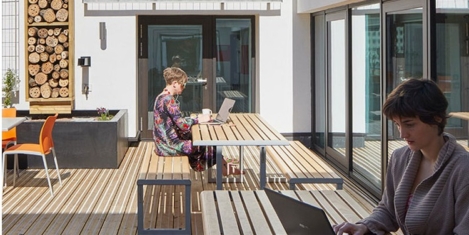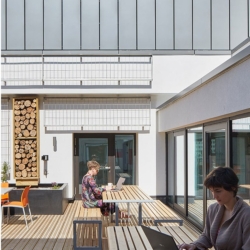To provide the best experiences, we use technologies like cookies to store and/or access device information. Consenting to these technologies will allow us to process data such as browsing behaviour or unique IDs on this site. Not consenting or withdrawing consent, may adversely affect certain features and functions.
The technical storage or access is strictly necessary for the legitimate purpose of enabling the use of a specific service explicitly requested by the subscriber or user, or for the sole purpose of carrying out the transmission of a communication over an electronic communications network.
The technical storage or access is necessary for the legitimate purpose of storing preferences that are not requested by the subscriber or user.
The technical storage or access that is used exclusively for statistical purposes.
The technical storage or access that is used exclusively for anonymous statistical purposes. Without a subpoena, voluntary compliance on the part of your Internet Service Provider, or additional records from a third party, information stored or retrieved for this purpose alone cannot usually be used to identify you.
The technical storage or access is required to create user profiles to send advertising, or to track the user on a website or across several websites for similar marketing purposes.
 The pandemic has certainly opened our eyes to the importance of constantly washing our hands, sterilising everything in sight and realising just how far germs can travel through the air, causing us to wince at the thought of a time where we huddled on public transport without masks. However, as we contemplate heading back to the office in the near future, businesses need to translate these learnings into workplace design and move indoor air quality to the top of the agenda. More →
The pandemic has certainly opened our eyes to the importance of constantly washing our hands, sterilising everything in sight and realising just how far germs can travel through the air, causing us to wince at the thought of a time where we huddled on public transport without masks. However, as we contemplate heading back to the office in the near future, businesses need to translate these learnings into workplace design and move indoor air quality to the top of the agenda. More →





 A new BCO research paper,
A new BCO research paper, 
 Improving air quality in the fight against COVID-19 could give businesses the edge over their competitors and attract more customers, according to a top UK university scientist. Writing in a new report for facilities services provider
Improving air quality in the fight against COVID-19 could give businesses the edge over their competitors and attract more customers, according to a top UK university scientist. Writing in a new report for facilities services provider 
























July 8, 2021
Indoor air quality needs to be talked about far more than it is
by Neil Franklin • Comment, Environment, Wellbeing, Workplace design